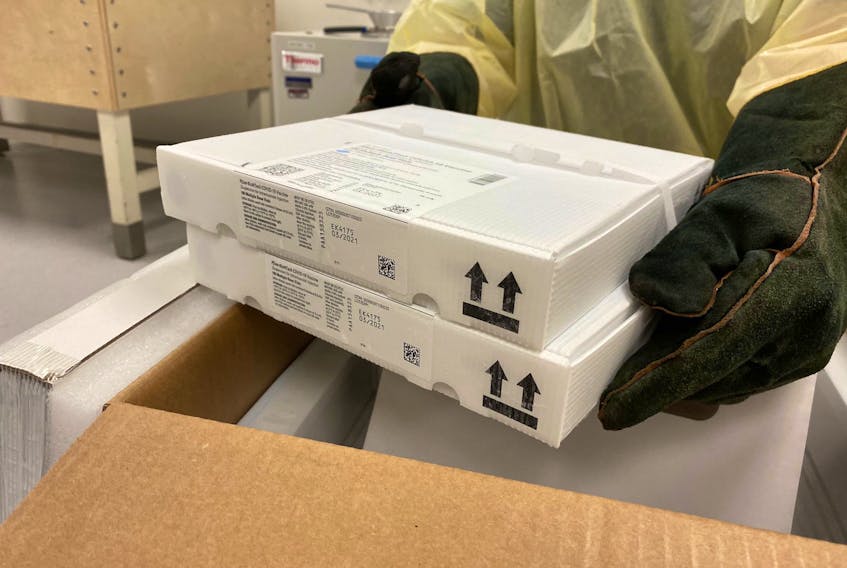As a Canadian citizen who grew up in New Brunswick and now lives in Newfoundland, I am very grateful to live in this beautiful country with a government that is prioritizing the purchase of lifesaving COVID-19 vaccines. As a virologist, I am proud that our governments continue to support basic science and research which are crucial in developing vaccines and therapeutics.
While watching last Friday’s federal press conference about vaccines that will soon be in the arms of Canadians, I was reminded of another amazing feat in vaccine development which began in Canada. Research on the VSV-based Ebola vaccine (VSV-ZEBOV) was first begun at the National Microbiology Lab in Manitoba. This vaccine was rushed into clinical trials during the 2014-2016 Ebola epidemic in West Africa. Just like the Pfizer-BioNTech COVID-19 vaccine, the VSV-ZEBOV vaccine needs to be stored at –80°C.
If a developing country in Africa can vaccinate its citizens against Ebola, what is there to complain about in Canada?
The VSV-ZEBOV vaccine has changed the way Ebola outbreaks are handled in Africa. Recently, it was used to contain another outbreak in the Democratic Republic of the Congo (DRC), second only in case numbers to the West Africa epidemic. The outbreak occurred in a remote area of the DRC, distant from hospitals and medical infrastructure (such as –80°C freezers), which was concurrently experiencing civil unrest. Nevertheless, individuals who had contact with someone diagnosed with Ebola as well as contacts of those contacts received the VSV-ZEBOV vaccine. This feat was accomplished without the government, economic or civil stability that we are so lucky to have in Canada.
As COVID-19 vaccines have begun to roll out in Canada, I have heard repeated complaints from government officials about the difficulty of distributing a vaccine that needs to remain at –80°C. For me, this complaining highlights another incidence of white privilege. What about being grateful that we have access to these vaccines in the first place? Other nations have fewer financial resources and greater infrastructure challenges to overcome in confronting the COVID-19 pandemic.
If a developing country in Africa can vaccinate its citizens against Ebola, what is there to complain about in Canada? The fact that Canadians are even able to complain about transporting a vaccine is privilege. There are so many countries waiting for vaccines to arrive. These countries may be waiting months or years for financially privileged countries like Canada to donate surplus vaccines, but only after the wealthy countries have had their citizens fully vaccinated. I cannot imagine that officials in less privileged countries would complain about having to keep vaccines cold if they were only able to access them for their citizens.
This is a reminder that we are very fortunate and very privileged to have access to vaccines. Complaining about distribution challenges does not look good on us. Instead of complaining, let us be grateful.
Hannah L. Wallace, PhD candidate in virology
Faculty of medicine
Memorial University









